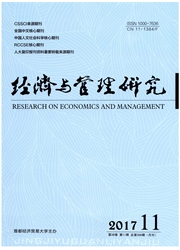

 中文摘要:
中文摘要:
2015年中国对外直接投资首次正式超过外商直接投资,跃升为世界第二大投资国,仅次于美国,但是,用发达国家跨国公司对外直接投资的理论解释类似中国这样的新兴经济体国家对外直接投资(OFDI)的快速发展和崛起,却稍显乏力,这引起了很多学者对于中国企业OFDI影响因素的关注,认为新兴经济体国家的制度不完善是影响企业OFDI的重要因素,而且甚至在有些国家是决定性因素。本文将制度因素作为内生变量,融入邓宁的国际折衷生产范式(OLI)理论框架中,构建中国企业对外直接投资的OFDI-S模型,通过对其进行经济学解析,分析母国制度对OFDI的影响,从理论上对OLI范式进行内涵和外延的扩展,并对中国企业OFDI国际化进行理论阐释,具有较强的理论和现实意义。
 英文摘要:
英文摘要:
China officially emerged as the world's second the transnational corporations became a net capital exporter in 2015 ,when OFDI exceeded FDI for the first time, largest investment country, second only to the United States. However, different from in developed countries, theory explanation of such rapid OFDI development of emerging economies is somewhat weak, attracting a lot of scholars to focusing on the driving factors of OFDI in Chinese enterprises. They deem that the imperfect system is the important factors affecting OFDI of emerging economies, even a decisive factor in some countries. Thus, this paper involves the institutional factor as an endogenous variable in the Dunning's OLI research framework, and constructs the OFDI-S model trying to explain the influence of the home country system on OFDI, which enriches the content and the extension of the OLI model in theory and fully analyses Chinese enterprises' successful internationalization behavior, having theoretical and practical significance to some extent.
 同期刊论文项目
同期刊论文项目
 同项目期刊论文
同项目期刊论文
 期刊信息
期刊信息
